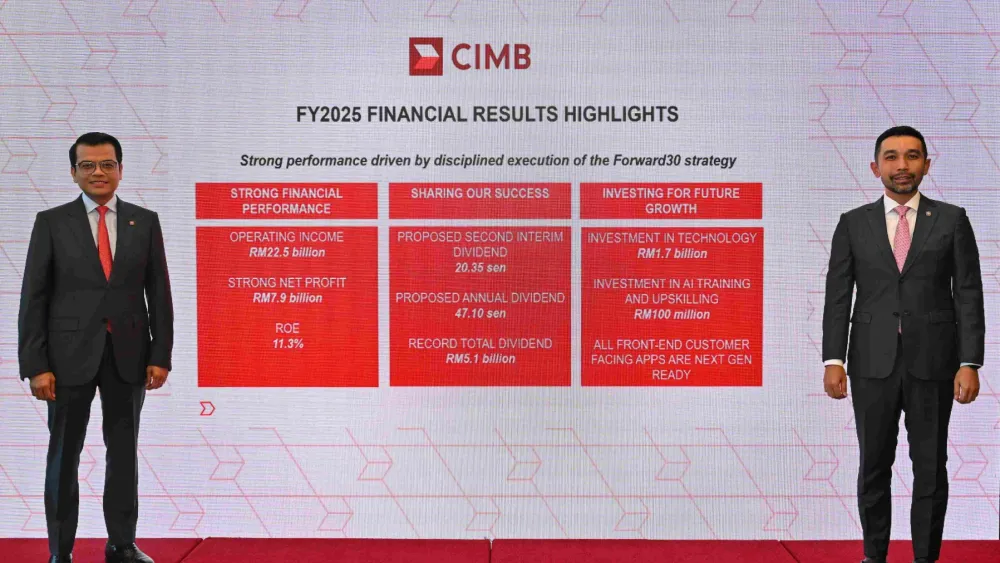
Hong Kong makes huge headway in realising smart banking ambitions
It rolled out a real-time fund transfer system, open API guidelines, virtual banks authorisation in 2018 alone.
In a bid to sharpen the competitiveness of its banking sector, Hong Kong’s top financial regulator rolled out an industry blueprint in September 2017 outlining seven key policy initiatives aimed at easing the city’s transition into the Smart Banking era. The move aims to bring back the fading glory of the SAR’s banks who have been losing luster as they trail behind London and New York in the latest industry reading of the Global Financial Centres Index as rising tech upstarts like Shanghai and Beijing also pose a threat to its financial dominance.
“The domestic banks have a long way to go to compete with the likes of HSBC or Citibank from a technology standpoint. However, the Hong Kong regulators have responded to this by promoting and driving tech, RegTech, and FinTech,” Sankar Krishnan, executive vice president, Banking and Capital Markets at Capgemini told Asian Banking & Finance.
One year later since the roll out of the blueprint and the Hong Kong Monetary Authority (HKMA) has made good on this pledge after operationalising four key initiatives outlined in the document in a tech-powered drive to rev up the sector.
This includes real-time fund transfer service called Faster Payment System (FPS) which officially went live on September 30. With the FPS, users can make and receive mobile payments in Hong Kong dollar and renminbi on a real-time basis by registering their mobile phone number or email address with the system as an account proxy for receiving funds.
Part of the blueprint also came with the hotly anticipated announcement that the regulator will issue virtual banking licences by end of 2018 toQ1 2019. This will enable entities to deliver the full suite of retail banking services through an app or a website without the need to maintain a physical presence.
Enter APIs
Another initiative that was successfully implemented in June is the guidelines for Open Application Programming Interface (API) framework for the banking sector which lays out how banks should interact with third party service providers. To set an example for the industry, the HKMA pledged to launch an open API on its own website where around 130 information sets on exchange rates, interest rates, and Exchange Fund will be made available via the technology.
The incorporation of standardised APIs can help facilitate easier integration between internal and partner systems and potentially reduce the cost of integration and maintenance for new apps, said Keith Pogson, senior financial services partner at EY in Hong Kong.
“At UOB, we have developed an API Gateway which our ecosystem partners, such as FinTech startups, can use to request for and to retrieve information from our systems,” said Christine Ip, CEO - Greater China, UOB. “We have in place a governance and security framework to ensure that our customers’ information is protected and secure.”
The launch of the framework may just give the rankings boost to Hong Kong who trails behind Singapore in the open banking readiness index released by the International Data Corporation (IDC) last May. The report observes that although Hong Kong has a supportive fintech/FTT ecosystem that has nurtured some of the world’s biggest funded fintech startups, the SAR is lacking in clear guidelines that could significantly speed up open API implementation.
All that is expected to change with the guidelines that give banks clearcut guidance on how to onboard the open API train. The HKMA expects banks to have the capacity to deploy Phase I Open APIs within six months and Phase II Open APIs within 12 to 15 months. “Banks improving performance using technology and API banking is a great way to get there faster than waiting for general ledger upgrades and investments. In the U.S., API Banking is the single largest initiative on a bank’s transformation agenda,” noted Capgemini’s Krishnan.
Testing the digital capabilities of banks is made possible by the Fintech Supervisory Sandbox (FSS 2.0) which was updated by the regulator in 2017 to provide banks and partnering fintech firms with a controlled environment where they can gather real-life data and feedback on new product and service offerings before their commerical launch. In a mere two years time since its debut in 2016, over 20 technology products and services that have been trialled in the sandbox have been successfully rolled out into the market.
“Sandbox use has steadily expanded since its establishment. I understand the industry appreciates the sandbox’s ability to expedite new fintech products, allowing banks and technology companies to obtain user and regulatory feedback at an early stage,” finance secretary Paul Chan said at a conference.
Such was the success of the HKMA’s sandbox that the Securities and Futures Commission and the Insurance Authority launched similar models for their respective industries in 2017 and was consequently linked up to the HKMA’s to speed up the trial of cross-sector fintech products.
Digitising trade finance
Beyond the obvious retail applications, the HKMA has also made it a point to expand technology applications to other banking segments like trade finance. In one such large-scale collaboration involving the participation of over 20 lenders including HSBC, Standard Chartered, Bank of China Hong Kong, Hang Seng Bank, Bank of East Asia, ANZ, and DBS, a blockchainpowered trade finance platform was officially rolled out to upgrade operations in the paper intensive industry.
“Trade finance is just one example of a process that has historically been highly manual but also quite complex, given the need to understand the validity of the underlying collateral and associated documentation. As such, it is an ideal use case for new technologies, such as blockchain, and we expect to see other uses in similar areas soon,” added EY’s Pogson.
Using distributed ledger technology designed by Chinese insurer Ping An Group, the regulator aims to significantly reduce processing time and cost by doing away with documentation requirements in an effort to capturethe shift in trade towards Asia. This adds to an existing partnership by the HKMA with the Monetary Authority of Singapore (MAS) for the Global Trade Connectivity Network, a trade finance solution built on blockchain that aims to streamline cross-border trade and financing.
“We are in active discussions with our clients with trade flows between our home markets of Australia and New Zealand and Hong Kong/Greater China to bring them on the platform,” said Ivy Au Yeung, CEO Hong Kong, ANZ.
Smaller players who are unable to access banking services due to high cost obstacles will also be able to benefit from this platform as they are afforded better access to trade and supply-chain finance. Given the nature of the platform, fraudulent activity will also be easier to detect as parties will be able to view transactions once trades are logged in the blockchain.
On its own, the initiatives already represent a massive boost to maintain Hong Kong at the forefront of financial services and the regulator plays a huge role to cementing this leadership.
“The HKMA is also driving collaboration between banks and non-banks and also fostering an environment of cooperation across central banks in Asia,” Krishnan added. “For example, the HKMA’s Bank Culture Reform circular announced in March 2017 that it will focus on governance, incentives, assessment and feedback is being adopted across the industry in 2018. Overall, the HKMA is performing extremely well to address challenges facing banks. That said, some work remains to be done to give the global counterparties even more comfort that there will be no surprises.”



















 Advertise
Advertise










